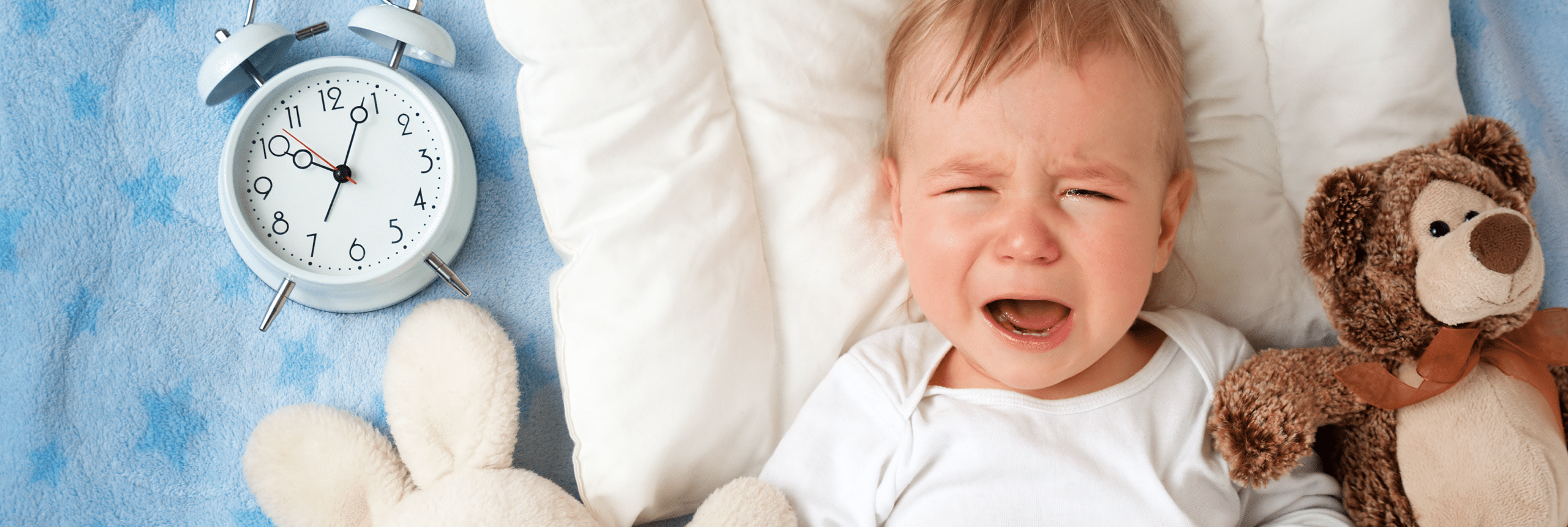Sleep is an essential part of a child’s development. However, sometimes, sleep is not always a peaceful and comfortable time. Some children may experience what is known as “night terrors,” which can be a terrifying experience for both the child and parents. Here, we will learn more about night terrors, why they happen to children, and how to handle this situation wisely.
What Are Night Terrors?
Night terrors are a relatively common sleep experience in children, although they can also occur in adults. Night terrors differ from ordinary nightmares that children may experience. Night terrors are a type of sleep disorder that occurs during non-REM sleep, meaning the child may not have reached the REM sleep phase where dreams typically occur.
During a night terror, a child suddenly awakens with deep fear and may exhibit symptoms like screaming, crying, sweating, and appearing highly confused. They may seem to be in a state of panic, but in reality, they are still asleep and unaware of their surroundings. This can be a very frightening experience for parents who may feel confused about what is happening to their child.
Night terrors in infants are a common sleep condition and may be caused by a variety of factors. While the exact causes are not fully understood, some factors that can influence the occurrence of night terrors in infants include:
- Heredity:
Family history can play a role in a baby’s likelihood of experiencing night terrors. If one or both parents have a history of night terrors or other sleep disorders, the baby may be more susceptible.
- Lack of Sleep or Sleep Disorders:
Babies who do not get enough sleep or who experience other sleep disorders such as sleep apnea or restless sleep may be at a higher risk of experiencing night terrors.
- Routine Changes:
Significant changes in a baby’s routine, such as long trips, changes in sleep environment, or the introduction of new foods, can affect sleep quality and trigger night terrors.
- Stress or Anxiety:
Although babies may be too young to experience stress or anxiety as adults do, significant changes in their lives, such as starting school, having a new caregiver, or changes in family life, can affect their sleep.
- Room Temperature:
Room temperature that is too hot or too cold can disrupt a baby’s sleep and trigger night terrors. C-PRO Baby Mattress is a sleeping surface that features breathable and temperature-regulating capabilities, allowing your little one to stay warm/cool even as room temperatures change to colder or warmer. This ensures a restful night’s sleep for your baby.
- Unresolved Thoughts or Feelings:
Some theories suggest that night terrors in babies may be related to feelings or experiences that are unresolved, even at a very young age. This is one reason why comfortable and secure sleep is essential for a baby’s development.
- Brain Development:
Some research indicates that night terrors may be related to ongoing brain development in babies and children. Their brains may not yet be fully regulating their sleep rhythms.
How to Deal with Night Terrors in Children?
If you find your child experiencing night terrors, there are several steps you can take to assist them and handle the situation wisely:
- Stay Calm:
First and foremost, stay calm. Remember that your child is asleep and not frightened when awake. Avoid trying to wake them abruptly or shaking them. - Ensure Safety:
Make sure your child remains safe during the night terror episode. Remove anything around the bed that could be dangerous, such as toys or sharp objects. - Maintain Regular Sleep Routines:
Help your child maintain regular sleep routines to reduce the risk of night terrors. Ensure they get enough sleep each night. - Consult a Doctor:
If night terrors become a frequent issue or significantly disrupt your child’s daily life, consider consulting a doctor or sleep specialist. They can provide further advice and solutions for your child.
Remember that night terrors in children are a common sleep disorder, and most children will outgrow them over time. The most important thing is to provide support and understanding to your child when they experience these episodes. With proper management, you can help them have a more peaceful and comfortable sleep and grow into a physically and mentally healthier child.






